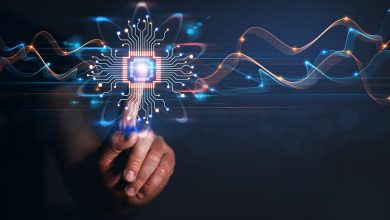Artificial intelligence (AI) is rapidly transforming industries, and cybersecurity is no exception. With its ability to analyze vast amounts of data and detect threats faster than humans, AI is revolutionizing digital security.
But this raises an important question: Will cybersecurity be replaced by AI? While automation is growing, human expertise remains critical. Technologies like digital twin technology are also playing a role in cybersecurity’s evolution, offering innovative ways to test and improve defense strategies. Let’s explore the future of AI in cybersecurity and whether it can truly replace human professionals.
The Rise of AI in CybersecurityH3 How AI Is Enhancing Cybersecurity Today
AI has emerged as a game-changer in the field of cybersecurity, significantly improving the ability to detect, prevent, and respond to cyber threats. By analyzing vast amounts of data in real time, AI identifies unusual patterns that could signal potential attacks. It also powers automated incident response systems, enabling immediate action to mitigate damage when threats are detected.
Additionally, AI enhances security through behavioral analysis, monitoring user activity to spot anomalies that may indicate fraud or insider threats. It also excels at phishing detection, identifying malicious emails and websites far more quickly than traditional methods. These capabilities make AI an indispensable tool in building stronger, more efficient cybersecurity defenses.
AI vs. Human Expertise: Strengths and Weaknesses
While AI offers speed and automation, human professionals bring critical thinking and contextual awareness.
AI’s Strengths:
- Processes massive amounts of data quickly.
- Detects threats with high accuracy.
- Automates repetitive tasks.
Human Expertise Strengths:
- Understands complex attacks that AI might misinterpret.
- Provides ethical oversight and decision-making.
- Adapts to new and evolving cyber threats.
The most effective approach is a combination of both AI and human intelligence rather than a full replacement.
Will AI Take Over Cybersecurity Jobs?H3 Automation in Cyber Defense: What’s Next?
AI is transforming the cybersecurity landscape by automating many tasks, but it is unlikely to replace human jobs entirely. Instead, it is reshaping roles and creating new opportunities. Routine tasks like log analysis, vulnerability scanning, and malware detection are increasingly being handled by AI, freeing up professionals to focus on more complex challenges.
Security analysts now rely on AI to streamline investigations and enhance decision-making, making their work more efficient. At the same time, new roles are emerging, such as AI security specialists and ethical AI auditors, who are critical in ensuring the responsible use of AI in cybersecurity. Rather than replacing humans, AI is becoming a powerful tool that complements and empowers professionals in the field.
Skills That Will Keep Cybersecurity Experts Relevant
Cybersecurity professionals must adapt to the AI-driven landscape by developing new skills:
- AI and Machine Learning Knowledge: Understanding how AI models work will be essential.
- Threat Hunting Expertise: AI assists in detection, but humans will interpret and counter sophisticated threats.
- Ethical Hacking: Penetration testers will still be needed to outthink AI-powered attacks.
- Regulatory Compliance Awareness: AI governance and cybersecurity regulations will require human oversight.
The Impact of AI on Cybersecurity ThreatsH3 AI-Powered Cyber Attacks: A Growing Concern
While AI is a powerful tool for cybersecurity, it is also being exploited by cybercriminals. Emerging threats include deepfake scams, where AI-generated fake videos and voices are used for fraud, and AI-powered malware that evolves to bypass security measures. Additionally, automated phishing attacks are becoming more sophisticated, with AI-crafted messages tailored to individual targets, making them harder to detect.
How AI Helps Detect and Prevent Threats Faster
Despite the rise of AI-driven threats, AI is also strengthening cybersecurity defenses. It predicts potential vulnerabilities before they are exploited, reduces response times from hours to seconds, and enhances fraud detection in sectors like banking and e-commerce. These advancements make AI a critical ally in the fight against cybercrime.
Will Cybersecurity Be Fully Automated?H3 The Future of AI in Cybersecurity Operations
While AI will continue to evolve, full automation in cybersecurity is unlikely. AI lacks human intuition and ethical judgment, and attackers are constantly developing new strategies that require ongoing training for AI systems. Additionally, AI decision-making needs human oversight to prevent false positives and unintended consequences.
Can AI Replace Human Decision-Making in Cybersecurity?
AI can provide valuable recommendations, but final decisions must remain with human experts. AI is a tool, not a replacement for human reasoning. A blended approach, combining AI’s speed and accuracy with human judgment, ensures the most effective defense against evolving cyber threats.
The Human-AI Partnership in Cybersecurity: What Lies Ahead?
The future of cybersecurity will not be AI replacing humans but rather AI working alongside professionals to create stronger defenses. Key developments to expect:
- AI as a Cybersecurity Assistant: AI will continue to handle time-consuming tasks, allowing professionals to focus on strategy.
- AI-Driven Security Training: Interactive AI-based simulations will help train security teams.
- Stronger Collaboration Between AI and Humans: The best cybersecurity strategies will integrate AI automation with human intelligence.
Conclusion: The Future of Cybersecurity in the Age of AI
AI is undoubtedly transforming cybersecurity, but it won’t eliminate the need for human experts. The question “Will cybersecurity be replaced by AI?” is best answered by looking at the strengths of both AI and human intelligence. Instead of replacing jobs, AI is reshaping them—allowing cybersecurity professionals to work smarter and respond to threats more effectively. The future lies in collaboration, where AI enhances, rather than replaces, human expertise in keeping digital landscapes secure.





